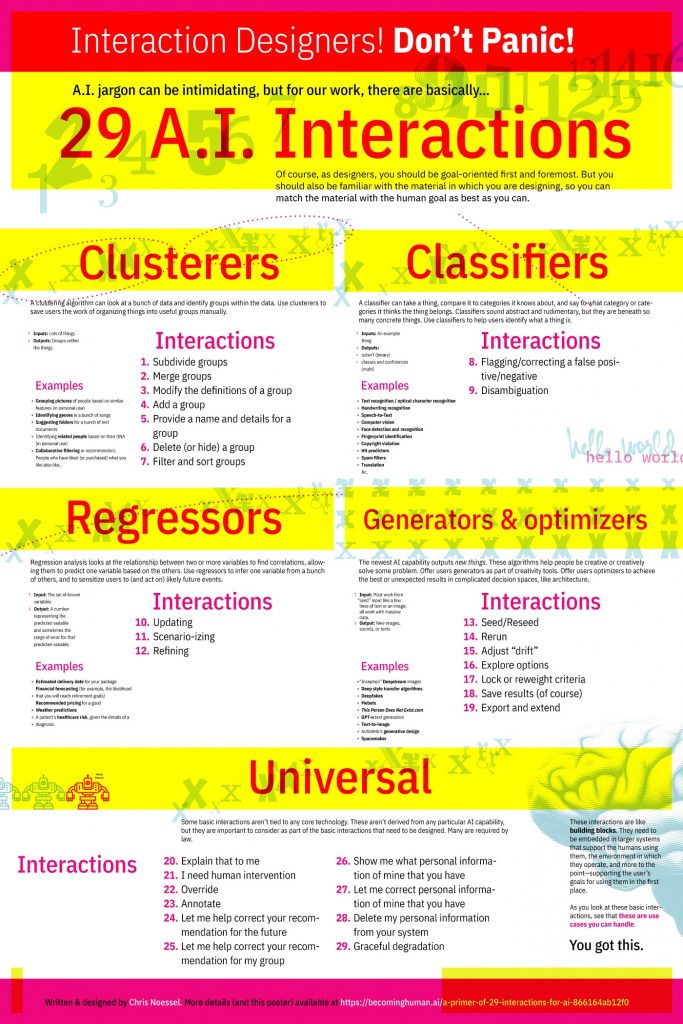Interaction design for artificial intelligence
*This article is impressive. It’s really plunging into the tall weeds.
https://becominghuman.ai/a-primer-of-29-interactions-for-ai-866164ab12f0
(…)
Regressors
“Regression analysis” sounds like some kind of psychology thing, but it’s a math thing. These algorithms look at the relationship between two or more variables to find correlations, allowing them to predict one variable based on the others. This can include prediction of future events based on models of the past, but it doesn’t have to be about time. Use regressors to infer one variable from a bunch of others, and to sensitize users to (and act on) likely future events.
It’s easier to understand with a toy example. Consider the height and weight of chimpanzees. As they get taller, they tend to weigh more. Because of this correlation, if I give you the height of a particular chimpanzee, you could look on a data table and predict how much it probably weighs. Regressors do this, but for much more complicated sets of variables, with much more complicated relationships to each other.
Note that under the hood, regressors and classifiers are the same task. But the difference from a user perspective is that classifiers output discrete classes, and regressors provide a number within a range (often between 0.0 and 1.0).
Practical examples of regressors
Estimated delivery date for your Amazon package
Financial forecasting (for example, the likelihood that you will reach retirement goals)
Recommended pricing for a good
Weather predictions
A healthcare patient’s risk, given the details of a diagnosis
↑ Input: The set of known variables
↓ Output: A number representing the predicted variable (and sometimes the range of error for that predicted variable)
Basic interactions with regressors
10. Updating: Predictions can be updated as new information comes in. Think of estimated time of arrival on a navigation app. How is the user notified? Can they reject the update? What “downstream” recommendations need to change and how?
11. Scenario-izing: Users may want to investigate how different predictions will play out and compare them. In some domains, users may want to document contingency plans for each scenario as a playbook to be used by others later.
12. Refining: After a predicted event happens, users may want to compare actual effects to predictions, in order to improve playbooks.
Related concepts and jargon: regression analysis, supervised learning (this is both related to regressors and classifiers), inference….
